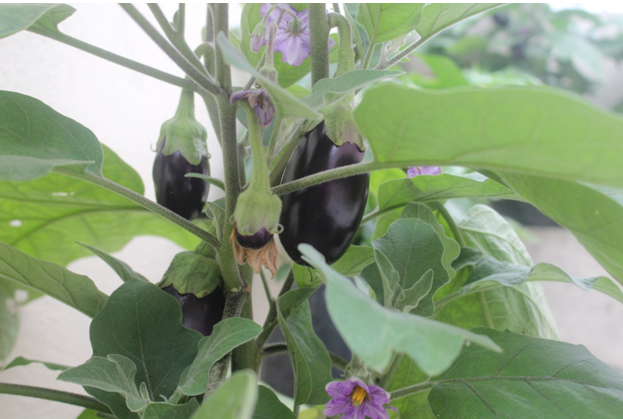Rising threats of climate change in the Hindu Kush Himalayas
1 year ago
The author is a Program Support Assistant at an NGO based in Kathmandu.

Though Nepal is an agricultural country, where agriculture is the main source of income, our agricultural products are not even enough for the local population. More than 70 percent of people in Nepal depend on agriculture, primarily for their livelihood.
With the advancement in science and technology, there have been a lot of changes in the traditional farming system. The new hybrid and scientific varieties of crop plants have been introduced, which can have better yield and production, labor cost and time have been minimized with the use of these tools and techniques. But human beings have failed to realize the impacts on our health and environment.
The use of insecticides, pesticides, chemical fertilizers has increased production on one hand but has done serious damage to natural soil fertility, adverse effect on human health, and environment on the other hand.
Rooftop farming is commonly known as ‘kausi kheti’ in Nepal. Although the term refers to ‘rooftop’ it does not necessarily have to be a rooftop alone, any unused space around your house could be used for this type of farming.
It employs the use of plastic bags, used bottles, and containers which are recycled and employed for the production of different varieties of crops. These bottles can also be painted with beautiful colors to make them attractive, decorative, and seasonal vegetables can be grown. Some common examples include tomato, bitter gourd, brinjal, capsicum, coriander alongside fruits like lemon, orange, etc.
With your small efforts and by utilizing your unused or extra spaces, you can feel the green ambience. It can be practiced in different places, every season depending upon the local weather and climatic conditions selecting the appropriate species for cultivation.
It requires low investment but has more profit and advantages. In any highly populated city, one of the main issues is the constant hike in price of agricultural products and their poor quality. In urban cities like Kathmandu where people own 3-4 Annas (a small piece of land), and they hardly find a space to grow plants, flowers, and vegetables in the land, this concept and its practice can be the best alternative.
This can reduce our market dependency, provides organic healthier supply rich with nutrients, and enhances our health. Nowadays this concept is slowly gaining the attention of the people in town areas during the COVID 19 pandemic period.
Rooftop farming comprises various techniques, including Aeroponic Agriculture (agriculture done in air without soil), Hydroponic Agriculture (agriculture done in a nutrient solution without using soil), and traditional agriculture (agriculture done in soil), among others. Meanwhile, traditional rooftop farming can be done with the use of different mediums like containers, plastic bags, bottles, while you can also turn your entire roof into farmland by waterproofing the concrete.
Rooftop farming can help to promote urban greenery and can ensure food security. Further, this approach focuses on a green and eco-friendly environment, the concept of Reduce, Reuse and Recycle principles, and minimizes waste management problems too.
So, I believe if used and implemented wisely, this practice can be beneficial. Moreover, organic products are generally expensive since most of them are imported, which often costs double the price of local produce. At rooftop gardens, you can grow fresh organic vegetables for free and enjoy the health benefits of chemical-free vegetables, without having to bargain at the market and also it saves your time.
Bhattarai is an undergraduate student at Institute of Forestry.

- by RAKHI BIND

- by Republica

- by Bishakha Koirala

- by Divya Adhikari
Leave A Comment